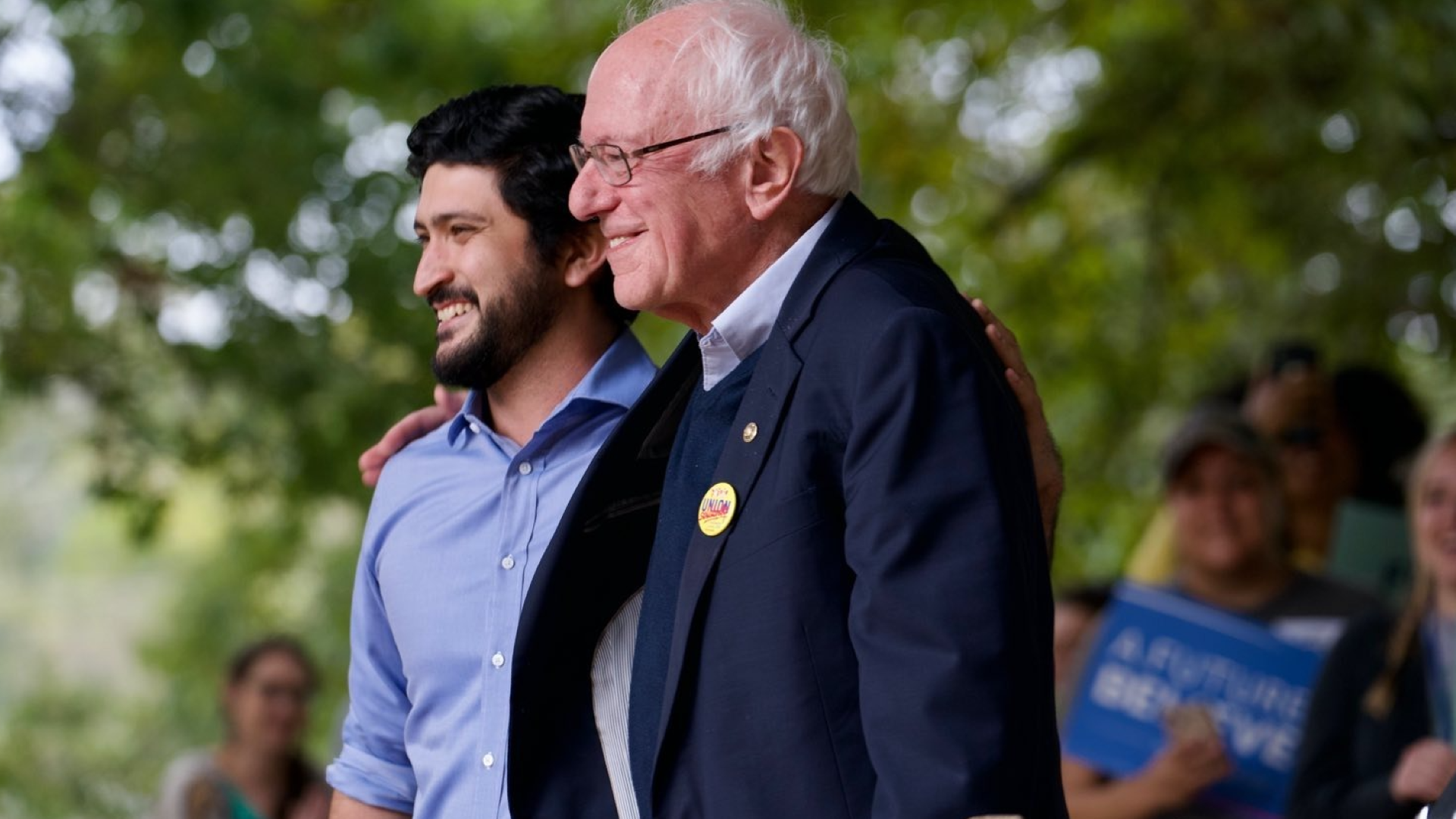Casar, Sanders Accuse YouTube Contractor of Union-Busting

Sen. Bernie Sanders (I-VT) and Rep. Greg Casar (D-TX) sent a letter Tuesday to Alphabet Inc. and Google CEO Sundar Pichai to express their “serious concern regarding alleged retaliation” against YouTube Music employees who are trying to unionize.
The letter comes after a group of remote workers employed by Google-affiliated contractor Cognizant, filed a petition last year with the National Labor Relations Board (NLRB) to join Alphabet Workers Union-CWA.
According to the letter, nearly three weeks after the workers filed their petition with the NLRB, Cognizant made an announcement requiring all of its employees to work in-person at its Austin office starting February 6.
In an interview with TYT, Casar said that he’s heard from dozens of workers who are also touring musicians, making in-person work at a set location unfeasible.
“[T]hey were promised these YouTube Music jobs that would allow them to continue to work remotely, to continue to travel across the country to do two or three jobs to make ends meet,” said Casar, “Now as soon as they launched their union drive [...] they started getting told everybody needs to come into the office. Everybody needs to be in Austin. But the fact is, there are many of those YouTube Music workers that not only don't live in Austin, they don't live in Texas at all. So moving across the country is an impossibility.”
The letter addressed to Pichai and cc’d to YouTube CEO Neal Mohan and Cognizant Technology Solutions CEO Ravi Kumar states in-part:
The abrupt “return-to-office” policy change does not appear to be in response to changing public health or economic conditions, and we are disheartened to hear about the anti-union posture of Cognizant for these workers who make Google successful.
These workers have stated that these positions were advertised as fully remote and that many were hired regardless of their location. Now, despite offering these workers fully remote jobs and having them work remotely for years, these workers are being told that failing to work from the Austin office would result in termination. [...]
We worry that Cognizant suddenly imposed these impossible requirements on these workers in response to them exercising their right to organize a union. Many of these workers, who make as little as $19 an hour, say they cannot afford the cost of relocating, the increased cost-of-living for the Austin area, and paying for child care on the current wages provided by your multi-billion dollar company.
The letter further states that when workers decided to strike against the “anti-union retaliation”, Cognizant reportedly outsourced many of its jobs to India instead of recognizing the workers’ union and bargaining with them over its return-to-work policy.
According to Casar, Google not only has a responsibility to protect the rights of its workers under the law, but doing so could present an opportunity for even more growth for the tech giant.
“[W]hile we celebrate starving musicians in places like Austin, we don't actually want them being paid starvation wages,” said Casar, “If they're actually able to organize their union and negotiate fair pay and a fair contract, then that actually could be good for everyone because they [Google] could keep on creating great streaming platforms for people to listen to music all across the world, but then also be able to afford to live in the city that they make so special.”
Casar says that part of the reason why so many companies have seemingly gotten away with anti-union practices is because the NLRB remains woefully underfunded, impacting enforcement.
Earlier this month, Sen. Sanders called out Starbucks CEO Howard Schultz for refusing to testify before the Senate Health, Education, Labor, and Pensions Committee.
And on the legislative front, Casar is pushing for the passage of the Protecting the Right to Organize (PRO) Act, which would expand organizing and collective bargaining rights for workers. But that likely won’t happen unless Democrats regain control of the House in 2024.
“We’ve got to properly fund the NLRB. We've got to make it easier for when a majority of workers want a union, to just be able to have the union, said Casar, “ And then once you have your union, we should pass laws that make it so that if companies are refusing to negotiate with that union, we have a better process of landing a union contract so people can get a raise and get the benefits that tend to come with union membership. But we don't want companies to just be able to stall out that process.”
Casar said he hopes to hear from representatives from Google, YouTube, and Cognizant in the coming days.
Neither Alphabet Inc., Google’s parent company, nor Cognizant Technology Solutions immediately responded to a request for comment.
TYT Washington Correspondent Candice Cole was previously a correspondent and senior White House producer for the Black News Channel and has worked at a number of local news outlets. You can find her on Twitter @CandiceColeNews.
